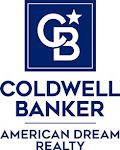
IT IS THAT TIME OF YEAR! CHRISTMAS TIME! LOTS OF THINGS GOING ON. DECEMBER 1 IS THE GUN BARREL CITY CHRISTMAS PARADE! COME AND WATCH THE PARADE ON MAIN ST. AFTER THE PARADE VISIT THE GUN BARREL FIRE STATION FOR SOME FIREWORKS. HOPE TO SEE YOU THERE!
CHRISTMAS PARADE AND FIREWORKS TO MUSIC
THEME: Angels Among Us
December 01, 2018—6:00PM
Starts at the Gun Barrel City Park, west to Bealls and back east returning to the park.
Fireworks to Christmas Music
Starts 30 minutes after the parade is complete at the Gun Barrel City Park.
December 01, 2018—6:00PM
Starts at the Gun Barrel City Park, west to Bealls and back east returning to the park.
Fireworks to Christmas Music
Starts 30 minutes after the parade is complete at the Gun Barrel City Park.


